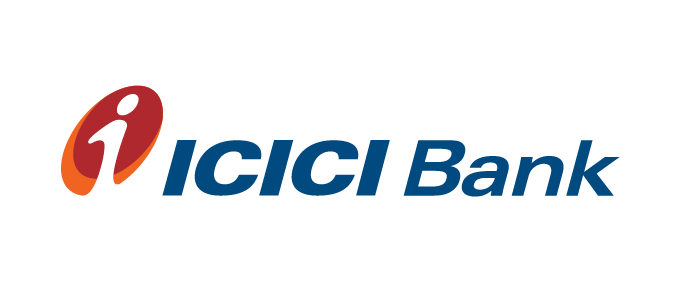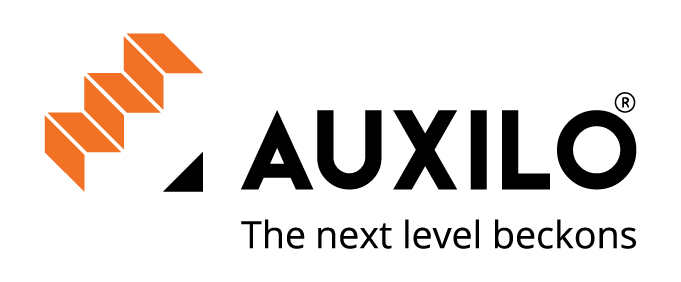Learn about in-demand specializations under engineering management, various career options and average salaries
Surely, you would have come across that old joke that was doing the rounds on WhatsApp about–
In India, you become an engineer first and then decide what to do with your life.
Situations may differ in other countries, and even in India, this situation has gradually improved over the years. But let’s face it, you could still belong to either of the following categories of engineers:
- You decided to pursue engineering even before you were eligible to vote, drive or drink, because everyone told you ‘Ismein bahut scope hain’
- You had an idea of what engineering education would be but it was not what you expected
- You have completed your engineering undergrad, and spent 2-3 years working as an engineer. Now you want to make a switch to management while staying connected to the technical side
Of course, there are several management degrees to explore, including the MBA.
However, if you wish to pursue an MBA abroad, you must have at least 3 years of industry experience. There are several other factors to consider, and if you would like to learn more about them, you can refer to our blog on Management Degree Options to Consider.
MEM is sometimes referred to as the MBA for Engineers or an Engineer’s MBA due to the way the program curriculum is structured. While each MEM program has a distinct focus, they generally aim to equip students with skills in the following areas:
- Operations Research
- Supply Chain Management
- Project Management
- Product Management
- Innovation and Change Management
- Digital Transformation
- Decision Making using Analytics
- Data Science applications for Business
- Corporate Financial Management
- Marketing and Sales Management
- Business Law and IPR
- HR and Labor Relations Management
- Optimization
- Business Statistics
- Entrepreneurship
In a nutshell, we can define Engineering Management as a combination of Industrial Engineering, Business Analytics, Technology Management, and other business functions such as Finance, Marketing, HR, and Legal.
This may not be a perfect definition, but it helps in understanding the various job prospects available after completing a degree in Engineering Management.
In Demand Specializations in Engineering Management
As a manager in an engineering enterprise, you may be responsible for managing operations, supply chains, projects, or a combination of the above – essentially the same role you could pursue with a Master’s in Industrial Engineering.
It is no surprise that many students who apply for MEM also apply to Industrial Engineering programs and vice versa.
Business Analytics + Technology Management
Before we explore career prospects for engineering management graduates, let us look at the current business environment.
In today’s fast-paced and competitive market, business organizations rely heavily on technology and analytics to drive their operations and strategic decisions. Enterprise technology, which includes systems and software designed to support large-scale organizations, plays a crucial role in this context. It facilitates seamless integration of various business functions, improves efficiency, and supports the scalability of operations.
Apart from enterprise technology, data-driven insights allow companies to optimize processes, enhance customer experiences, and make informed decisions. Advanced analytics tools help predict market trends, understand consumer behaviour, and manage risks. Decisions related to product development strategy, production planning, plant management, and so on- often involve extensive number-crunching. All of this is possible through effective technology management which ensures businesses have the right technological infrastructure in place to support these analytics efforts.
Consequently, professionals skilled in both business analytics and technology management, including enterprise technology, are essential. They bridge the gap between technical capabilities and business acumen, driving growth and efficiency in organizations. At a high level, such professionals can be classified under the broad job title of ‘Business Analyst’.
Students can also pursue the role of a Business Analyst after completing a degree in Management Information Systems. Therefore, we see several students applying for both MEM and MIS programs.
To learn more about the diverse responsibilities you may encounter in this role, check out blog on Job Description of a Business Analyst.
In addition to the above, there are several other career paths one can explore after completing a MEM degree, which we discuss here.
Project Management
Project Management in an engineering-focused company involves combining principles of engineering, management, and leadership to ensure projects are completed on time, within budget, and meet the desired quality standards. Key areas include project planning, resource allocation, risk management, and performance monitoring. Engineering manager specializing in project management are adept at coordinating teams, managing stakeholders, and implementing effective communication strategies to achieve project goals.
Imagine you are a Project Manager at a leading construction firm like Bechtel. A typical project might involve constructing a large-scale infrastructure project such as a bridge or a highway. You would be responsible for developing the project plan, scheduling tasks, and allocating resources. Your day-to-day responsibilities would include coordinating with engineers, contractors, and suppliers, conducting site inspections, and ensuring compliance with safety and regulatory standards. By effectively managing budgets and timelines, you ensure that the project progresses smoothly and is completed successfully.
On the other hand, imagine a role as a Project Manager at a tech giant like Google. Your focus might be managing software development projects. This could involve leading a team of software engineers, setting project milestones, and ensuring the timely delivery of software products. You might work on integrating new features, debugging issues, and optimizing performance. Your responsibilities would include balancing technical challenges with business objectives, managing client expectations, and delivering high-quality software solutions that meet user needs.
Similarly, a Project Manager at a renewable energy company like Vestas might focus on wind farm development projects. Your responsibilities could include site selection, securing permits, and overseeing the installation of wind turbines. You would collaborate with environmental engineers, local authorities, and community stakeholders to ensure the project aligns with sustainability goals and regulatory requirements. Through the implementation of effective project management practices you help promote clean energy solutions and contribute to the global transition toward renewable energy.
A Project Manager at a pharmaceutical company like Pfizer might work on developing new drugs. This could involve managing clinical trials, coordinating with researchers and regulatory bodies, and overseeing the manufacturing process. You would ensure that each stage of drug development adheres to strict quality and safety standards. By effectively managing resources and timelines, you help facilitate the development of life-saving medications and contribute to advancements in healthcare.
Thus, as a project management professional, you will be the driving force behind successful project execution, ensuring that engineering projects are completed efficiently, effectively, and to the highest standards.
Skills Required to Succeed as a Project Manager
- Project Planning and Scheduling: Master scheduling techniques like Gantt charts and tools such as MS Project to effectively plan and timeline projects.
- Risk Management: Learn to identify, assess, and mitigate risks using various risk assessment tools and methodologies.
- Quality Management: Develop quality assurance processes and standards to ensure project deliverables meet the required quality criteria.
- Cost Estimation and Budgeting: Gain proficiency in financial modeling to accurately estimate project costs and create budgets.
- Resource Allocation: Understand how to allocate resources efficiently to maximize productivity and minimize waste.
- Project Lifecycle Methodologies: Study different methodologies like Agile and Waterfall to manage projects through their entire lifecycle.
- Stakeholder Management: Learn to identify and manage project stakeholders to ensure their needs and expectations are met.
- Change Management: Develop skills in managing change within projects, including change control processes and communication.
- Earned Value Management (EVM): Use EVM techniques to measure project performance and progress.
- Proficiency in Project Management Software: Get hands-on experience with tools such as JIRA, Trello, and other PM software to manage and track projects.
Career Options You Can Explore as a Project Manager
- Project Manager: Oversee project planning, execution, and completion, ensuring all phases are delivered on time and within budget.
- Program Manager: Manage multiple related projects, coordinating across project managers to achieve overarching business objectives.
- Project Coordinator: Assist project managers by handling administrative tasks, scheduling meetings, and tracking project progress.
- Risk Manager: Identify, assess, and mitigate risks associated with projects to ensure successful project delivery.
- Quality Assurance Manager: Ensure project deliverables meet quality standards through rigorous testing and process improvement.
- Construction Project Manager: Manage construction projects from conception to completion, coordinating with various stakeholders and ensuring compliance with regulations.
Country Wise Annual Average Salary You Can Expect within Engineering Management Discipline:
Project Manager
| Country | Average Salary Range |
|---|---|
| USA | $1,35,562 |
| UK | £52,876 |
| Canada | CA$88,316 |
| Germany | €75,000 |
| Netherlands | €81,750 |
Quality Assurance Manager
| Country | Average Salary Range |
|---|---|
| USA | $132,869 |
| UK | £65,630 |
| Canada | CA$1,01,419 |
| Germany | €69,500 |
| Netherlands | €77,750 |
Product Management
Product Management involves the strategic planning, development, and marketing of products throughout their lifecycle. This engineering management specialization combines principles of engineering, business, and user experience to create products that meet market demands and drive company growth. As a product manager, you would be engaged in tasks such as market research, product design, development coordination, and devising product launch strategies. Product managers excel at balancing technical capabilities with customer needs, ensuring products are both innovative and marketable. A key aspect of modern product management is leveraging data analytics to inform decision-making and optimize product outcomes.
Imagine working as a Product Manager at an automotive company like Tesla. Your focus would be on the development of the next generation of electric vehicles. This involves leading a team of engineers, setting product specifications, and managing the production timeline. You would work on integrating advanced technologies, improving battery performance, and enhancing the user experience. Your responsibilities would include balancing technical challenges with business objectives, and analytics would play a crucial role in understanding market demands, forecasting trends, and optimizing production processes. By leveraging data insights, you ensure that the new vehicle not only performs exceptionally but also aligns with consumers’ expectations for innovation and sustainability.
In contrast, a Product Manager at a consumer goods company like Procter & Gamble (P&G) might focus on developing a new line of household products. For instance, you could be involved in conducting market research, identifying consumer preferences, and overseeing the product design process. This would involve collaborating with R&D teams, packaging designers, and marketing professionals to ensure the product meets quality standards and appeals to target demographics. Data analytics helps track consumer feedback, monitor sales performance, and identify areas for improvement. By managing the product lifecycle from conception to launch, you contribute to the company’s portfolio of successful and trusted brands.
Similarly, a Product Manager at a software company like Microsoft might focus on developing new features for a flagship software product like Microsoft Office. This role involves gathering user feedback, defining feature specifications, and collaborating with software developers to implement changes. You would be responsible for ensuring that new features enhance user productivity and satisfaction while maintaining compatibility and performance standards. Using data analytics, you can track user interactions, identify pain points, and prioritize feature development. By effectively managing product updates and releases based on data-driven insights, you help sustain the software’s market leadership and user base.
A Product Manager at a healthcare company like Medtronic might focus on developing innovative medical devices. This role involves managing cross-functional teams, coordinating clinical trials, and overseeing regulatory approvals. You would ensure that each stage of product development adheres to strict quality and safety standards. Data analytics enables you to monitor clinical data, evaluate device performance, and make evidence-based decisions to enhance product efficacy and safety. By aligning the product strategy with healthcare needs and technological advancements, you facilitate the creation of life-saving devices that improve patient outcomes and advance medical science.
As a product management professional, you will be the driving force behind product development, ensuring that engineering-driven products not only meet technical specifications but also delight customers and achieve business goals.
Skills Required to Succeed as a Product Manager
- Product Development Lifecycle: Understand the phases of product development from ideation to launch and post-launch.
- Market Research and Analysis: Learn market segmentation techniques to identify target audiences and analyze market trends.
- User Experience (UX) Design: Study UX principles to design products that provide a seamless and intuitive user experience.
- Product Roadmap Planning: Develop road mapping techniques to plan product development and prioritize features.
- Competitive Analysis: Conduct competitive intelligence to understand competitors’ strengths and weaknesses and identify market opportunities.
- Pricing Strategies: Learn financial analysis for pricing to set competitive and profitable product prices.
- Agile Methodologies: Gain knowledge of Agile and Scrum practices to manage product development efficiently.
- Data Analytics and Metrics: Develop skills in data analysis and interpretation to make data-driven product decisions.
- Product Management Tools: Get proficient in tools like Aha!, Trello, and other product management software.
- Prototyping Software: Use prototyping tools like Figma to create and test product prototypes before development.
Career Options You Can Explore as a Product Manager
- Product Manager: Oversee the development and lifecycle of a product, from ideation to launch, and post-launch performance.
- Product Development Manager: Lead the product development process, collaborating with engineering, design, and marketing teams.
- Technical Product Manager: Focus on the technical aspects of product management, working closely with engineering teams to define product requirements.
- UX/Product Designer: Design user interfaces and experiences that meet user needs and enhance product usability.
- Market Research Analyst: Conduct market research to inform product strategy and identify market opportunities.
- Product Marketing Manager: Develop marketing strategies for product launches, working closely with the product management team.
Country Wise Annual Average Salary You Can Expect as a Product Manager :
Product Manager
| Country | Average Salary Range |
|---|---|
| USA | $1,96,004 |
| UK | £67,247 |
| Canada | CA$1,01,681 |
| Germany | €66,500 |
| Netherlands | €81,750 |
UX/Product Designer
| Country | Average Salary Range |
|---|---|
| USA | $1,19,599 |
| UK | £47,882 |
| Canada | CA$71,510 |
| Germany | €55,000 |
| Netherlands | €73,500 |
Market Research Analyst
| Country | Average Salary Range |
|---|---|
| USA | $72546 |
| UK | £41,604 |
| Canada | CA$79,685 |
| Germany | €53,500 |
| Netherlands | €57,013 |
Product Marketing Manager
| Country | Average Salary Range |
|---|---|
| USA | $167,397 |
| UK | £67,886 |
| Canada | CA$99,142 |
| Germany | €67,800 |
| Netherlands | €72,750 |
Corporate Financial Management
Corporate Financial Management in the context of a Masters in Engineering Management (MEM) focuses on the strategic planning, analysis, and management of a company’s financial resources. This specialization combines the principles of finance, engineering, and business to ensure effective financial decision-making and resource allocation. Key areas include financial planning and analysis, investment management, risk assessment, and cost control. Financial managers in this field utilize data analytics and financial modeling to optimize corporate finances and drive business growth.
Imagine being a Financial Manager at a leading tech company like Google. Your role involves managing the company’s investment portfolio, developing financial strategies, and analyzing financial data to guide decision-making. You are responsible for forecasting revenue, budgeting for various projects, and assessing the financial viability of new initiatives. By using advanced financial models and data analytics, you can identify trends, evaluate risks, and make data-driven decisions that enhance the company’s financial performance and strategic positioning.
Consider a role as a Corporate Financial Manager at a manufacturing giant like General Electric (GE). Your focus is on optimizing the financial operations of various business units. This could involve conducting cost-benefit analyses, implementing cost-control measures, and ensuring efficient use of resources. You might work on projects related to capital budgeting, financial reporting, and performance evaluation. Data analytics plays a crucial role in monitoring financial metrics, identifying cost-saving opportunities, and improving operational efficiency. By leveraging financial data, you ensure that GE’s manufacturing processes are not only cost-effective but also aligned with the company’s overall financial goals.
In contrast, a Financial Manager at a pharmaceutical company like Pfizer focuses on managing the financial aspects of drug development and commercialization. This involves analysing costs associated with research and development, managing budgets for clinical trials, and assessing the financial impact of new product launches. By using financial models and data analytics, you can evaluate the return on investment for various projects, forecast future financial performance, and make informed decisions that drive profitability and innovation. Your role is crucial in ensuring that Pfizer’s financial resources are effectively utilized to bring new drugs to market and improve patient outcomes.
Similarly, a Corporate Financial Manager at a financial services firm like JPMorgan Chase might be involved in managing the firm’s investment strategies and financial risk. This involves conducting financial analysis, developing investment portfolios, and assessing market trends. You would be responsible for ensuring that the firm’s investments are aligned with its financial objectives and risk tolerance. Data analytics helps you monitor market conditions, evaluate investment performance, and make strategic adjustments to maximize returns. By leveraging financial data, you contribute to the firm’s financial stability and growth.
Overall, Corporate Financial Management within MEM focuses on managing and optimizing a company’s financial resources across various industries. As a financial management professional, you will act as a strategic advisor guiding financial decisions to help engineering-driven companies achieve their financial goals and maintain a competitive edge. By leveraging data analytics and financial modeling, you will make informed decisions that enhance financial performance, drive growth, and mitigate risks.
Skills Required to Succeed as a Corporate Financial Manager
- Financial Accounting and Reporting: Study financial statement analysis to understand and interpret financial reports.
- Corporate Finance: Learn capital budgeting techniques to make investment decisions and manage corporate finances.
- Investment Analysis: Gain expertise in valuation methods to assess investment opportunities.
- Risk Management: Develop risk assessment models to identify and mitigate financial risks.
- Financial Planning and Forecasting: Learn forecasting techniques to predict financial performance and plan accordingly.
- Budgeting and Cost Control: Master budgeting techniques to manage costs and ensure financial control.
- Financial Markets and Instruments: Understand financial derivatives and how they are used in financial markets.
- Mergers and Acquisitions (M&A): Study the M&A processes, including due diligence, valuation, and integration.
- Financial Modeling: Gain proficiency in Excel and other financial modeling tools to create financial models.
- Data Analytics in Finance: Use SQL, R, and other data analysis tools to analyze financial data and make informed decisions.
Career Options You Can Explore as a Finance Professional Within Engineering Management Discipline
- Financial Analyst: Analyze financial data, create financial models, and provide insights to support business decisions.
- Corporate Finance Manager: Oversee corporate financial activities, including budgeting, forecasting, and investment analysis.
- Investment Banker: Provide financial advisory services to corporations, including mergers and acquisitions, and capital raising.
- Risk Manager: Identify and manage financial risks to protect the organization’s assets and profitability.
- Treasury Manager: Manage the company’s liquidity, investments, and risk related to financial activities.
- Controller: Oversee accounting operations, financial reporting, and compliance with financial regulations.
Country Wise Annual Average Salary You Can Expect as a Finance Professional within Engineering Management Discipline:
Financial Analyst
| Country | Average Salary Range |
|---|---|
| USA | $1,10,834 |
| UK | £50,182 |
| Canada | CA$67,669 |
| Germany | €66,000 |
| Netherlands | €50,000 |
Risk Manager
| Country | Average Salary Range |
|---|---|
| USA | $1,41,898 |
| UK | £63,789 |
| Canada | CA$99,801 |
| Germany | €79,000 |
| Netherlands | €83,350 |
Treasury Manager
| Country | Average Salary Range |
|---|---|
| USA | $127,959 |
| UK | £80,510 |
| Canada | CA$115,107 |
| Germany | €70,000 |
| Netherlands | €71500 |
Technical Sales and Marketing
Technical Sales and Marketing in the context of a Masters in Engineering Management (MEM) involves leveraging engineering knowledge and business acumen to promote and sell technology related products and services. This specialization integrates principles of engineering, marketing, and sales to effectively communicate the value of complex technical solutions to customers. Key areas include market analysis, product positioning, customer relationship management, and sales strategy development. Professionals in Technical sales and marketing leverage data analytics and technical expertise to drive revenue growth and enhance market competitiveness.
Imagine working as a Technical Sales Engineer at a leading tech company like Cisco. Your role might involve selling advanced networking solutions to businesses. You would be responsible for understanding customer needs, presenting tailored solutions, and demonstrating the technical benefits of your products. By leveraging data analytics, you can identify potential customers, analyze market trends, and develop targeted sales strategies. Your technical knowledge allows you to effectively address customer concerns and differentiate your products from competitors, ensuring successful sales and strong customer relationships.
Consider a role as a Technical Marketing Manager at a semiconductor company like Intel. Your focus might be on promoting new processors and related technologies to a global market. This involves developing marketing campaigns, creating technical content, and conducting product demonstrations. You work on projects related to market segmentation, competitive analysis, and customer feedback collection. Data analytics would play a crucial role in measuring campaign effectiveness, understanding customer preferences, and optimizing marketing strategies. By combining technical expertise and data-driven insights, you ensure that Intel’s products are effectively positioned and marketed to meet the needs of diverse customer segments.
In contrast, a Technical Sales Manager at an industrial automation company like Siemens focuses on selling automation solutions to manufacturing clients. This involves conducting technical presentations, negotiating contracts, and providing post-sales support. You are responsible for understanding the technical requirements of manufacturing processes and offering solutions that enhance efficiency and productivity. Data analytics helps you identify key accounts, track sales performance, and forecast demand. By integrating technical knowledge with sales strategies, you ensure that Siemens’ automation solutions meet customer needs and drive business growth.
Similarly, a Technical Marketing Specialist at a renewable energy company like SolarCity might work on promoting solar energy solutions to residential and commercial customers. This involves creating educational content, managing digital marketing campaigns, and participating in industry events. You are responsible for highlighting the technical and environmental benefits of solar energy, addressing customer queries, and converting leads into sales. Data analytics helps you track marketing performance, understand customer behavior, and optimize outreach efforts. By combining technical insights with marketing strategies, you contribute to the adoption of sustainable energy solutions and the growth of SolarCity’s market share.
Overall, Technical Sales and Marketing within MEM focuses on bridging the gap between technical innovation and customer needs across various industries. As a professional in technical sales and marketing, you will be the driving force behind promoting and selling engineering-driven products, ensuring that they reach the right customers and achieve business objectives. By leveraging data analytics and technical expertise, you will develop informed strategies that enhance customer engagement, drive sales, and foster market growth.
Skills Required to Succeed as a Technical Sales and Marketing Professional
- Sales Strategies and Techniques: Learn various sales strategies and forecasting techniques to drive sales and meet targets.
- Marketing Principles and Strategies: Study the marketing mix (4Ps) to develop effective marketing strategies.
- Customer Relationship Management (CRM): Get proficient in CRM software like Salesforce to manage customer relationships and track sales activities.
- Market Research and Analysis: Conduct market segmentation and research to identify target markets and understand customer needs.
- Product Specifications: Gain technical product knowledge to effectively communicate product features and benefits to customers.
- Digital Marketing Analytics: Use tools like Google Analytics to analyze digital marketing campaigns and measure performance.
- Sales Reporting Software: Learn to use sales reporting software to track and analyze sales performance metrics.
- Technical Writing: Develop technical writing skills to create detailed product specifications and documentation.
- Competitive Intelligence: Conduct competitive analysis to understand market competition and identify strategic opportunities.
- Knowledge of Industry-Specific Regulations: Understand industry-specific regulations to ensure compliance in sales and marketing activities.
Career Options You Can Explore as a Technical Sales and Marketing Professional
- Technical Sales Engineer: Combine technical knowledge with sales skills to sell complex products and services to businesses.
- Sales Manager: Lead a sales team, develop sales strategies, and drive revenue growth.
- Marketing Manager: Develop and implement marketing strategies to promote products and services.
- Account Manager: Manage client relationships, ensuring customer satisfaction and identifying opportunities for upselling.
- Product Marketing Manager: Bridge the gap between product development and sales, creating marketing strategies that highlight product features and benefits.
- Business Development Manager: Identify new business opportunities, build relationships with potential clients, and drive business growth.
Country Wise Annual Average Salary You Can Expect as a Technical Sales and Marketing Professional :
Technical Sales Engineer
| Country | Average Salary Range |
|---|---|
| USA | $87,509 |
| UK | £47,234 |
| Canada | CA$78003 |
| Germany | €67,500 |
| Netherlands | €44,339 |
Account Manager
| Country | Average Salary Range |
|---|---|
| USA | $70429 |
| UK | £45,660 |
| Canada | CA$72,785 |
| Germany | €53,250 |
| Netherlands | €65,000 |
Marketing Manager
| Country | Average Salary Range |
|---|---|
| USA | $1,14,412 |
| UK | £47,997 |
| Canada | CA$94,591 |
| Germany | €55,000 |
| Netherlands | €77,000 |
Conclusion
To sum up, the appeal of engineering management lies in its unique ability to bridge the knowledge gap between decision making and technical expertise. Specializations such as operations research and product management will not only equip you to drive innovation and efficiency across wide ranging sectors but also open doors to entrepreneurship and leadership in industries ranging from automotive to electronics. As industries continue to evolve, pursuing engineering management will enable you to blend engineering skills with business and management strategies shaping you as a global engineering leader in today’s dynamic business landscape .
Connect with Collegepond Counsellors
If you are reflecting on your future in terms of changing career or moving up in your existing career, then studying abroad could be the key to exploring and realizing your full potential. Our team at Collegepond is committed to assist you in exploring top universities and in demand specializations – helping you achieve your academic and professional objectives by obtaining a Master’s in Engineering Management.
Collegepond, headquartered in Mumbai, India, is a premier competitive exam preparation and career counseling organization with an established presence in the study abroad admissions consulting space.
Since 2003, we have passionately counseled, prepared and assisted thousands of students-ranging from graduate and under graduate to doctoral aspirants -gain acceptance into competitive programs at prestigious foreign universities.
With bonafide expertise in career counseling, the application process and admission assistance, we know what it takes to prepare a competitive application and make you stand out among hundreds of other qualified applicants.
Do not let the opportunity pass by. To learn more about trends, innovations and prospects in the field of engineering management sign up for a free consultation today. We are ready to prepare you to earn the coveted Master’s in Engineering Management-and help you gain a decisive competitive advantage in your chosen field.
Call us at 022-46003655
Visit www.collegepond.com
Visit our nearest center in Mumbai, Thane and Hyderabad.
Email: info@collegepond.com



































